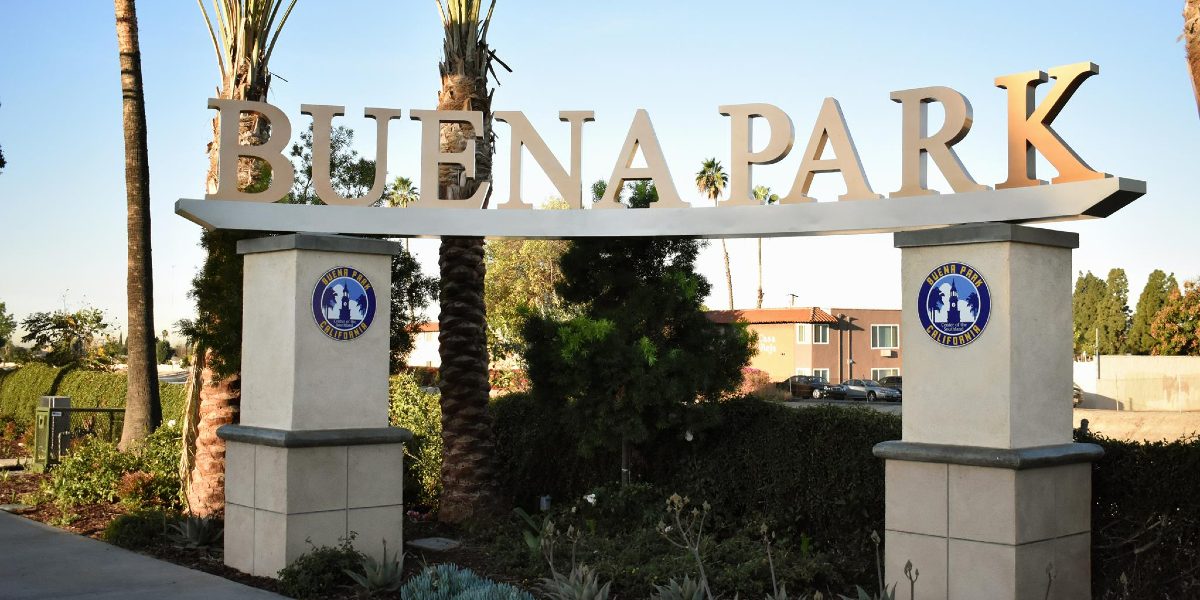Buena Park’s city council has signaled its desire to embark on an multi-million dollar program to inspect every one of the 8,244 apartments in the city, regardless of age or condition, abandoning its prior reliance on inspecting apartments in response to specific complaints.
Buena Park has had a rental inspection program in place since 2001 – a complaint-based inspection system designed to focus on older apartment buildings in more problematic areas of Buena Park.
Shifting to mandatory inspections of all apartments would cost $2 million and require adding half a dozen more full-time employees to the city’s payroll – in addition to the full-time employees already dedicated to the existing rental inspection program. The program would also require spending city funds on new vehicles and other equipment.
While billed as a two-year “pilot” program, comments by councilmembers indicated they see it as a permanent program.
The scale is far more ambitious than rental inspection programs in other Orange County cities. Anaheim and Santa Ana, for example, conduct their inspections over a 4 or 5 year period.
The pilot program would be funded by charging apartment owners an annual fee of $106 per apartment unit, which staff estimates would generate $1.75 million a year. The city could also dip into the general fund, according to Community & Economic Development Director Matt Foulkes.
One way to reduce the substantial cost of this turbo-charged rental inspection program, according to Foulkes, was to exempt apartments built in the last 10 or 20 years – since the primary source of poor apartment conditions is in old stock operated by negligent owners.
“If a property is less than 20 years old, it is likely it is still in pretty good to better-than-average condition,” Foulkes told the city council, saying other Orange County cities with rental inspection programs employ this methodology.
Foulkes told the council that restricting an exemption to apartments built within the last ten years would yield minimal savings, since there hasn’t been much apartment construction in Buena Park during the past decade.
Another less expensive alternative to the inspect-every-single-apartment-every-year program would be inspecting a random subset in larger or older complexes, or complexes with problematic histories.
“For example, if you had a 100-unit complex,” said Foulkes, the city would inspect a percentage of those units, and if enough came back with violations, a more comprehensive inspection could be conducted.
Chip Ahlswede from the Apartment Association of Orange County urged the city to move cautiously and deliberately while working with property owners, and said his organization also desired to bring negligent landlords in to compliance.
“Problems like these do exist,” said Ahlswede. “That said, there are different approaches in which we can address these issues. And make it more effective.”
Ahlswede expressed concern not only with the cost of the turbocharged inspection program, but with its “blanket” approach that “hit everybody from units built 10 to 20 years ago that are being kept up, to the ones that we are really targeting.”
Tim Shaw, government affairs director for the Pacific West Association of REALTORS, told the council he was “not interested at all in defending or protecting those bad actors out there” but expressed a preference for the current “complaint-driven process as a rule of thumb where a renter or a tenant can make a complaint to the city that the conditions at the property are inadequate.”
Shaw also cautioned that fees imposed on apartment owners would wind up being passed on to tenants in the form of higher rent.
During the council’s discussion as to direction for staff, Councilmember Connor Traut downplayed the potential $106 per-unit rental inspection fee being passed on tenants, saying that “only comes out to $10 a month.”
Traut did say that he wanted to craft the rental inspection program in such a way that landlords would absorb the costs of any repairs stemming from the inspection program, rather than recouping those costs through rents.
City Attorney Chris Cardinale said that would be “a stretch” and take the city into the realm of rent control.
According to sources, Councilman Jose Castaneda has been the prime mover on the dais behind switching to a more pervasive and expensive rental inspection program. On the outside, several progressive advocacy groups have been organizing the effort, including scripting residents who spoke during the public comment period.
Among these groups are AHRI for Justice and Chispa OC, both of which are funded by Tides Advocacy, a left-wing advocacy group based in San Francisco with tens of millions of dollars in assets. They were joined by the Orange County Central Labor Council. All of these groups have lately been putting their financial and organizational resources behind rent control pushes in Orange County cities with left-leaning councils.
While asking Buena Park to enact a vigorous, intrusive and expensive rental inspection system to improve loving conditions for renters, these groups also demanded the inspection program ignore another factor that negatively impacts tenant safety and quality pf life – overcrowding – and demanded the city turn a blind eye to the number of people living in an apartment unit.
AHRI organizer Susan Cheng told the council that “code enforcement should not include inspecting the number of occupants in the unit.”
Otniel Plavia from the OC Labor Federation asked the council to include language “that assures renters that the number of people living in a rental unit will not be recorded.”
Progressive groups also raised the spectre of landlord retaliation, claiming tenants are reluctant to complain or request repairs for fear the landlord will retaliate. They’re also demanding that single family rental homes be included in the rental inspection program.
While acknowledging there are bad actors in any industry or sector, AAOC’s Ahlswede noted California has among the most renter-friendly laws in the country, including robust protections for tenants against retaliation from landlords.
Ahlswede told OC Independent that when a tenant files a complaint, state law protects them from retaliation, harassment, rent increases, eviction or any other action for 180 days. If retaliation does occur, tenants have recourse to a year’s rent. Even after the 180 days has expired, tenants believing they’re being subjected to harassment can bring in the Fair Housing Council.


